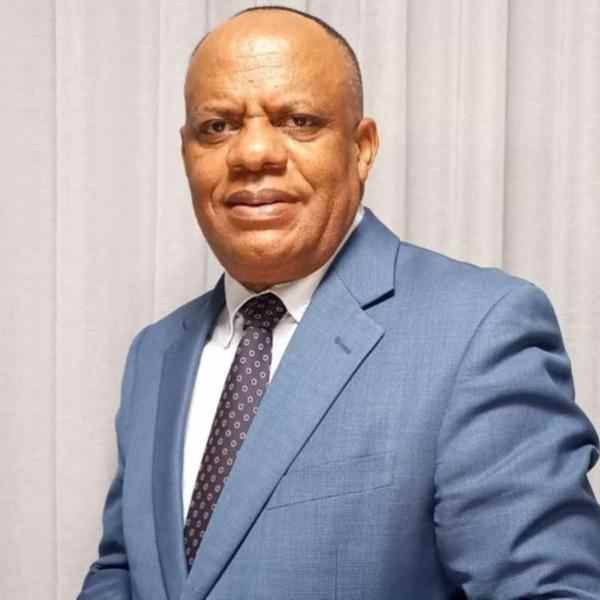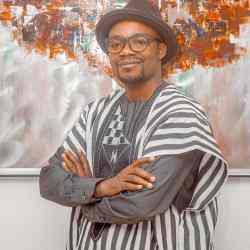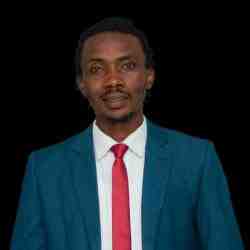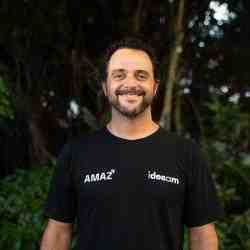Introduction
Alexander Chisango is building a grassroots socio-economic movement in Zimbabwe on the basis that the family should be placed at the center of thinking and action for socio-economic progress, and that sustained equality between the sexes is the core of the secure family.
The New Idea
Alexander Chisango is introducing a new type of socio-economic development strategy based on the need to restore and affirm the family as the center of Zimbabwean society. Alexander believes that conventional government and private "development interventions" neither take into account the central role of the family in grounding society, nor offer viable alternatives. According to Alexander, many of the problems faced by society and the state could be eased or eliminated if families could be empowered as the basic units for social and economic development. His organization, Abundant Life Trust, provides a variety of services designed to help families stay together through hard times. Through a network of community-based family empowerment advisors, he is systematically counseling and empowering families to identify their needs, develop plans and directly organize resources to meet those needs, and implement, monitor and review their "family development plans." Abundant Life combines assistance to families in starting their own businesses with guidance in ways families can give back to their communities.
Alexander is also working to improve gender equity. He feels that conventional conceptions of family, which place men solely in the role of "breadwinner" and women in the role of "homemaker" fail to address men's and women's capabilities to act together and support each other in both roles. He believes that liberation of men and women from these often dysfunctional and oppressive gender roles will strengthen the bonds between husbands and wives and help them better provide for their families. Deeply respectful of women's aspirations for education and independent livelihood, Alexander defines Abundant Life's main goal to be "educating and counseling men to end their oppression of women" as well as appreciate and facilitate the development of female family members.
The Problem
Zimbabwe is currently in the midst of a profound economic and social transformation. The government and big business sectors have contracted under the IMF-World Bank economic structural adjustment program that began in the early 1990s, resulting in the rise of economic growth without corresponding reductions in poverty, decreasing incomes, loss of job security and high unemployment. An April 1995 survey conducted by the Ministry of Public Service, Labor and Social Welfare showed that 62 percent of Zimbabwean households are below the poverty line, and 46 percent are below the food poverty level, unable to meet basic nutrition requirements.
This economic situation has extremely negative repercussions for Zimbabwean families. The costs of basic family needs (food, clothing, medical care, housing and schooling) have increased dramatically. When men (who, according to 1992 census data, are heads of 82 percent of Harare's households) fail to provide for their families, feelings of despair and powerlessness cause many of them to divorce or separate from their wives and abandon their families. According to Alexander, marriage guidance agencies in Harare report receiving close to 100 new clients each month, and the city's Registrar of Marriages registers almost 8,000 divorces per month.
In the rural areas, frequent droughts and lack of agricultural employment opportunities have exacerbated the problem even further, as men and women leave their families to seek jobs in the cities. Poverty and financial struggles increase the tensions in families, leading to an increase in domestic violence. Alexander believes that rise of risky sexual behavior, as evidenced by the growing number of AIDS-related deaths in Zimbabwe, is also a telling indicator of social breakdown. The Ministry of Health recently revealed that the country is losing an average of 300 lives per day from AIDS alone and that by the beginning of 1995, a total of 552,000 children had lost one or both parents to AIDS. Most AIDS orphans are cared for by members of the extended family, putting a further economic and emotional burden on already-strained family relationships.
As the large mining, manufacturing and agricultural enterprises that until now have constituted the backbone of Zimbabwe's economy decline, small enterprises are struggling to fill the gaps. Commercial banks, established businesses, service and support agencies and local authorities discriminate against or disregard these small entrepreneurial efforts. Financial or technical support earmarked for new businesses usually remains inaccessible, due to bureaucracy, prohibitive regulations and corruption. Alexander believes that the largest problem, however, is that economic support services provided to aspiring entrepreneurs are usually offered in a way that is divisive to the family. Lending and training policies do not recognize the need for spouses to support each other in business ventures, and will give recognition and support to only one family member.
The Strategy
Alexander has designed a three-stage counseling and support strategy for Abundant Life. Working through a network of churches, businesses, community organizations, sports clubs and social groups, Alexander spreads Abundant Life's message of "family empowerment and capacity-building for economic and family entrepreneurship." In the first stage, he organizes meetings with the help of these various social, religious and business groups. At the meetings, Alexander presents an analysis of social conditions in Zimbabwe, and facilitates a discussion on what it means to be the "head of household."
Through the discussion process, Alexander hopes that the audiences will begin to understand their responsibilities toward their families and the possibilities for improving their situations. At the end of each meeting, Alexander distributes an evaluation form, so that the audience can evaluate the presentation and discussion. The evaluation also contains a questionnaire, inviting the respondents to describe their family situations and indicate the kinds of practical actions they might undertake to improve their relationships and economic status.
The questionnaires become the basis for stage two of Abundant Life's program: counseling meetings with individual families and seminars for small groups of families.
Abundant Life's counseling team consists of volunteers who have experience in business entrepreneurship, community development and gender and marital relations. A typical counseling meeting takes each family through the following steps:
Documenting and discussing all of the family members' social and economic problems;
Listing causes of the problems, as seen by both family and counselor;
Listing long-term and short-term effects of each of the problems and
Jointly identifying solutions to each of the problems, causes and effects.
With the goal of bringing spouses closer together, if the "head" of the participating family is male, Abundant Life conducts gender equity counseling.
Following individual family counseling, seminars are organized for families prepared to collaborate in small groups. They concentrate on ways to start businesses or explore important social issues, such as AIDS, unemployment or gender emancipation. Through these meetings, Alexander and his team also identify and train new counselors, who can spread the movement. The counselors are called "family empowerment advisors."
Once the family and counselor have identified problems and designed possible solutions, they are ready to enter stage three of the project: the family empowerment plan. This plan is individually tailored to the needs of each family, but the general process consists of:
Identifying each member's talents, experience and skills that could be useful for generating income and addressing the identified problems;
Discussing the family's immediate and long-term social and economic needs and income-generation possibilities; and
Helping families apply for existing government and private aid services, such as the government "school fees" fund, medical insurance and job-training programs. Abundant Life also helps parents enroll their children with organizations that provide career training, survival skills and self-defense training, and health and nutrition education.
The most important part of stage three is assigning duties so that each member of the family plays a part in its empowerment, and setting deadlines for completing each part of the agreed plan. After stage three, families receive advice and support as they start their own businesses and get involved in community service. Alexander estimates that more than 4,800 people have been reached by the project, and that 2,100 people from 420 families have been counseled in stage three.
Alexander plans to augment the services provided by Abundant Life to include more programs for children and support for fledgling business ventures. He also is working hard to gain more publicity, partnership information exchange and policy advocacy for the organization, through continued meetings and the use of radio. As the project expands, Alexander wants to make sure that it does not become dependent on hired staff. All of Abundant Life's counselors work on a volunteer basis, so that the organization can retain its essential character as a voluntary social movement.
Under Alexander's continued directorship, Abundant Life Trust has recently been adopted as an affiliate development organ of the nationwide Evangelical Fellowship of Zimbabwe, an umbrella organization for Zimbabwe's churches. Since 85 percent of Zimbabwe's population consider themselves to be Christian, churches are capable of reaching a wide audience and are involved in a variety of development projects. Most of the marginalized are also found in churches where they go in search for consolation. Also, the Evangelical Fellowship has an extensive network of sister organizations throughout Sub-Saharan Africa, the Pacific, Latin America and Europe. This has great potential to boost the project's international expansion. Community groups/agencies in neighboring countries have begun to study the project's methodology as a model for socio-economic development.
The Person
Born in 1962, Alexander had to assume adult responsibilities at an early age. His father died when he was fifteen, forcing Alexander to assume a co-breadwinner role in his family. With his mother¡¦s assistance, he supported his family and financed his education by growing and selling vegetables and other crops. The struggles of his own family impressed upon him the need for families to work together for their own empowerment. Alexander became adept at social entrepreneurship during the 1980¡¦s, through his work as a regional coordinator and various subsequent positions within the government¡¦s adult literacy campaign. He was initially posted to a remote rural area in the Midland province, and had to start everything from scratch. He convinced school masters and village authorities to provide material support for the project, secured an office and teaching facility from other government departments and trained and coordinated volunteer teachers himself. In 1985, he became the Assistant National Literacy Coordinator.
In 1988, Alexander joined the Popular Education Collective, a nongovernmental organization whose mission is to identify the educational and training needs of grassroots groups and to provide education services to the community. Here he served as Education Officer and gained many planning, fundraising, and management skills that have served him well in his work with Abundant Life. In 1989, he received an adult education diploma, and completed his bachelor¡¦s degree in 1992. He also holds certificates in practical accounting, writing for development, public relation, and Christian ministry. In more recent years, Alexander has transferred his interest to family issues. He has worked as a consultant for various organizations that deal with women¡¦s issues, micro-enterprises, and grassroots social change. He founded Abundant Life in 1994 primarily in order to address the status of women within the family. Through his work as a Christian minister, he is spreading a dynamic faith designed to combat the fatalism that plagues Zimbabwean society, while helping people see Christianity as a powerful tool for self-improvement and community development.




